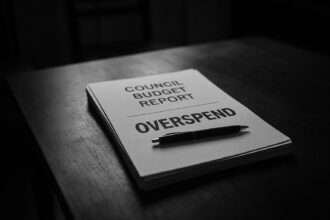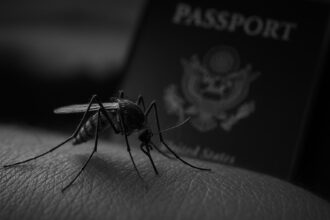Former Unilever CEO Alan Jope has shifted focus from FMCG leadership to advocating for stronger laws against modern slavery and environmental sustainability, while continuing to support ethical supply chains and global social causes in his retirement.
Alan Jope, the former CEO of Unilever, has embraced retirement with the same passion that defined his corporate career. Recently returned from a thrilling motorcycle adventure across India and Nepal, Jope has shifted his focus from the fast-moving consumer goods (FMCG) sector to championing sustainability and ethical practices in global supply chains. He juggles life between the UK and Connecticut, engaging in various projects that resonate deeply with his values.
Among his commitments is the Leverhulme Trade Charities Trust, dedicated to funding academic research and supporting underprivileged families in the grocery sector. Additionally, Jope has taken on a significant role with the Global Commission on Modern Slavery and Human Trafficking, a body led by former Prime Minister Theresa May, which aims to address the entrenched issues of modern slavery that plague industries worldwide. Jope found this role particularly compelling due to his extensive experience in a sector where labour exploitation has surfaced as a pressing concern, exemplified by Unilever’s historical challenges within its cocoa supply chains.
“The global agriculture and food supply chain has many problems,” Jope acknowledges, underscoring that forced labour is a common thread affecting all companies, regardless of size. He advocates for legally mandated due diligence within supply chains, positing that major companies should shoulder the bulk of this responsibility. Such sentiments resonate amid growing concerns that crucial legislation, like the EU’s Corporate Sustainability Due Diligence Directive, faces delays driven by political opposition, potentially slowing progress on human rights within the corporate sphere.
Today’s backdrop of nearly 50 million individuals trapped in modern slavery raises inevitable questions about the feasibility of the United Nations’ target to eliminate these abhorrent practices by 2030. “What’s the alternative?” Jope challenges. “The goal is to reverse and ultimately eradicate slavery. I believe tougher laws and action by business could have a massive impact.” He articulates a vision whereby every small change contributes to broader societal improvements, echoing a belief that even minor successes hold significant value.
Jope’s enthusiasm for tackling these issues remains vividly intact nearly two years following his departure from Unilever, which he led for five years. His tenure was marked by a notable emphasis on sustainability and addressing the climate crisis, a battle he believes is now more pressing than ever. “We are passing tipping point after tipping point,” he states, reflecting on the fragility of agricultural land in the UK as confirmed by the Climate Change Committee’s recent findings. The report warns that around half of Britain’s top-quality farmland is now at risk of flooding, reflecting a dire lack of preparedness for climate impacts.
He insists that a collaborative approach involving government, business, academia, and civil society is essential to navigating these challenges effectively. There is a pervasive sentiment that progress is lagging, with recent communications from British food industry executives suggesting that many firms are failing to adequately respond to the climate crisis or convey its significance to investors.
Despite these challenges, Jope argues against painting all CEOs with the same brush. Within the executive community, he sees numerous leaders striving for innovation in sustainability. “Of course, there will be companies going too slow… but the broader narrative isn’t fair. Many are principled and genuinely concerned,” he adds, advocating for a recognition of the collective good that many leaders are striving to achieve.
Interestingly, Unilever itself has found its commitment to sustainability scrutinised following a change in leadership. Critics note a perceived de-prioritisation of environmental, social, and governance (ESG) initiatives under Jope’s successor, Hein Schumacher, raising concerns over whether the company has strayed from its earlier commitments. Following an anonymous memo from industry insiders, Unilever faced tough questions about its resilience and strategic approach during its latest Annual General Meeting.
Jope remains firm in his position that the media portrayals do not accurately reflect Unilever’s current commitments. He notes a minor adjustment in the company’s sustainability targets—with a revised goal to cut virgin plastic use—should not overshadow the overall dedication to these principles. “If management tried to reduce Unilever’s commitment to sustainability, they’d have a revolution,” he asserts, confident that the culture of sustainability is ingrained in the company’s foundation.
With an illustrious career that has included navigating diverse cultures across the globe, Jope emphasises the powerful role of companies in supporting equitable social outcomes. His work now extends beyond modern slavery and into fighting energy poverty through his position on the board of the Global Energy Alliance, a collective effort to create sustainable energy solutions.
Reflecting on global trade dynamics and future regulatory environments complicated by geopolitical tensions, Jope predicts that businesses will need to pivot from a cost-focused approach to one prioritising supply chain resilience. “What we’re going to see is a massive reemphasis on organising supply chains rather than chasing lowest global costs,” he explains. Despite the challenges, he remains optimistic about potential opportunities for British brands in international markets, asserting that understanding consumer insights is crucial for successful expansion.
In retirement, Jope regards his newfound time as a luxury, engaging deeply with the socio-economic challenges that continue to shape the FMCG sector. As he rides motorcycles across continents and immerses himself in advocacy, one must ponder how he finds a moment to rest amidst a life dedicated to meaningful change.
Reference Map
Source: Noah Wire Services
- https://www.thegrocer.co.uk/interviews/beyond-unilever-alan-jope-on-soap-slavery-and-the-supply-chain/704553.article – Please view link – unable to able to access data
- https://www.modernslaverycommission.org/who-we-are – The Global Commission on Modern Slavery & Human Trafficking is an organization dedicated to eradicating modern slavery worldwide. It comprises experts from various sectors, including former UN officials and business leaders. Alan Jope, former CEO of Unilever, serves as a commissioner, contributing his extensive experience in global supply chains to the commission’s efforts. The commission works collaboratively to develop strategies and policies aimed at eliminating modern slavery and human trafficking.
- https://modern-slavery-statement-registry.service.gov.uk/statement-summary/C1AZZ5qY/2024 – Unilever’s 2024 Modern Slavery Statement outlines the company’s commitment to combating modern slavery within its operations and supply chains. The statement details Unilever’s engagement with various stakeholders, including suppliers, trade unions, and civil society organizations, to monitor working conditions. It also describes the company’s use of social audits and grievance mechanisms to identify and address potential risks of modern slavery, particularly focusing on migrant workers in countries like Thailand, Malaysia, the UAE, and Saudi Arabia.
- https://www.bloomberg.com/news/videos/2021-01-21/unilever-ceo-jope-on-equality-covid-19-biden-video – In this Bloomberg interview, Alan Jope, CEO of Unilever, discusses the company’s initiatives to promote equality and address social issues. He emphasizes Unilever’s commitment to ensuring that all workers in its supply chain earn a living wage by 2030. Jope also highlights the importance of collaboration with NGOs and other stakeholders to tackle systemic issues and improve livelihoods across the company’s global supply chain.
- https://www.theguardian.com/media/2019/jun/19/unilever-boss-says-brands-using-woke-washing-destroy-trust – Alan Jope, CEO of Unilever, criticizes companies that engage in ‘woke-washing’—using social causes for marketing without genuine action. Speaking at the Cannes Lions conference, Jope warns that such practices can erode trust in the industry. He emphasizes the need for brands to authentically support causes and back up their messaging with real, impactful actions to maintain consumer trust and credibility.
- https://www.pioneerspost.com/news-views/20210122/unilever-takes-on-social-inequality-trailblazing-supply-chain-targets – Unilever has announced ambitious targets to address social inequality within its supply chain. The company pledges to spend €2 billion annually by 2025 with suppliers owned and managed by under-represented groups, including women, racial and ethnic minorities, people with disabilities, and LGBTQI+ individuals. Additionally, Unilever commits to ensuring that all workers in its supply chain earn a living wage by 2030, aiming to create a more equitable and inclusive society.
- https://www.foodprocessing.com/business-of-food-beverage/business-strategies/news/21435462/unilever-ceo-we-wont-back-down-on-esg – In this article, Alan Jope, CEO of Unilever, reaffirms the company’s commitment to environmental, social, and governance (ESG) initiatives despite facing political backlash. Jope emphasizes that Unilever will not retreat from its sustainability agenda, highlighting the importance of addressing climate change and social inequality. He also discusses the need for consistent ESG reporting standards and the company’s dedication to integrating sustainability into its core business model.
Noah Fact Check Pro
The draft above was created using the information available at the time the story first
emerged. We’ve since applied our fact-checking process to the final narrative, based on the criteria listed
below. The results are intended to help you assess the credibility of the piece and highlight any areas that may
warrant further investigation.
Freshness check
Score:
8
Notes:
The narrative includes recent details about Alan Jope’s post-Unilever activities and references to contemporary issues like the EU’s Corporate Sustainability Due Diligence Directive. However, it does not mention any very recent changes or specific events that might indicate a definitive freshness.
Quotes check
Score:
6
Notes:
The quotes are from Alan Jope but do not provide the date or original source beyond the article itself. This suggests they might be original to the article, but without further verification, it cannot be confirmed.
Source reliability
Score:
9
Notes:
The Grocer is a reputable publication, known for reporting on the FMCG sector. The narrative originates from this reliable outlet, which typically ensures thorough reporting.
Plausability check
Score:
8
Notes:
The claims about Alan Jope’s activities and the challenges in the FMCG sector are plausible, given his background and the current global focus on sustainability and human rights. However, some assertions about industry trends and specific company actions lack concrete evidence.
Overall assessment
Verdict (FAIL, OPEN, PASS): PASS
Confidence (LOW, MEDIUM, HIGH): HIGH
Summary:
The narrative appears to be largely reliable, given its origin from a reputable source and the plausibility of the claims. However, the freshness of the content is somewhat tempered by the lack of very recent events, and the quotes’ originality could not be fully verified.













